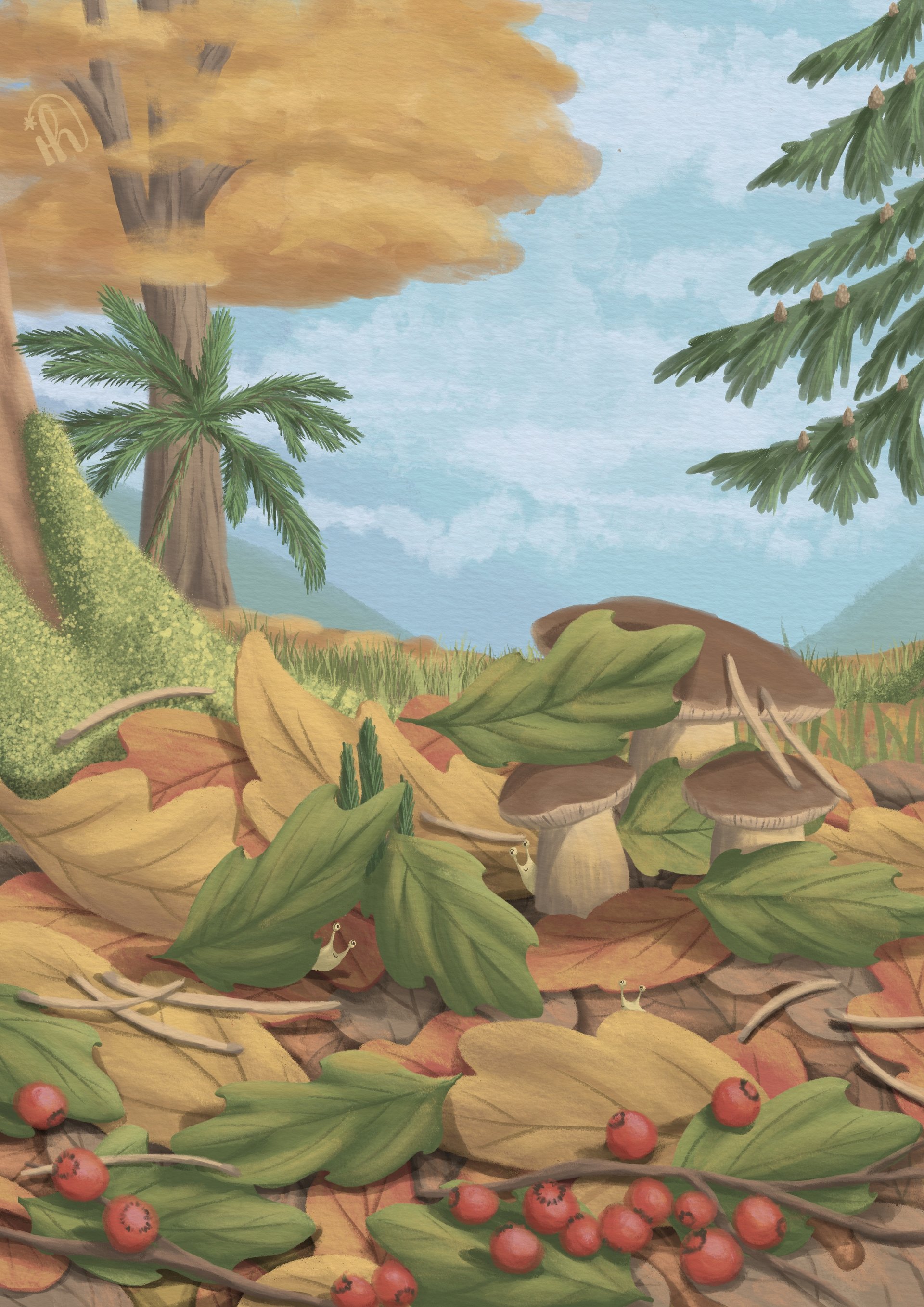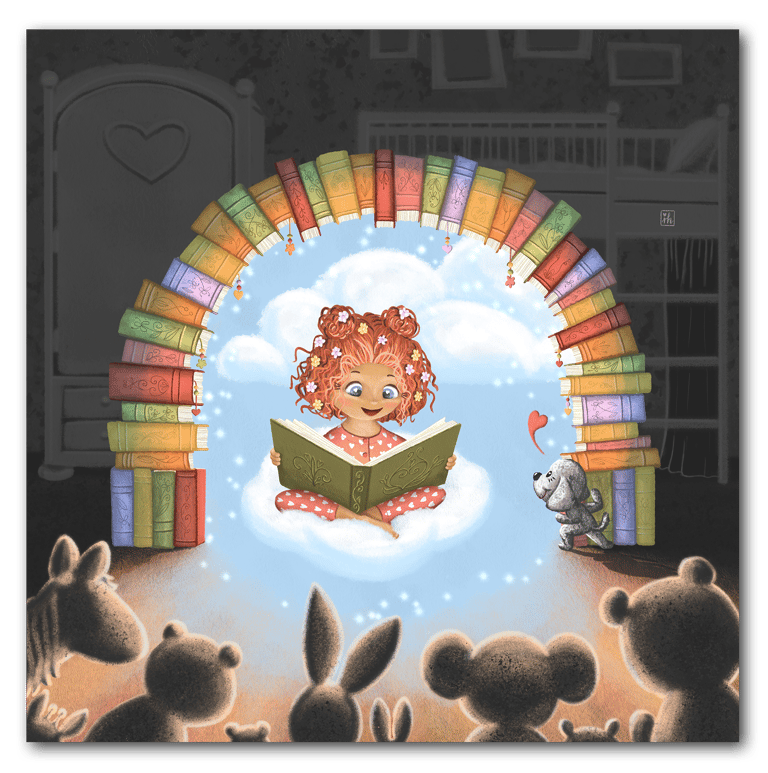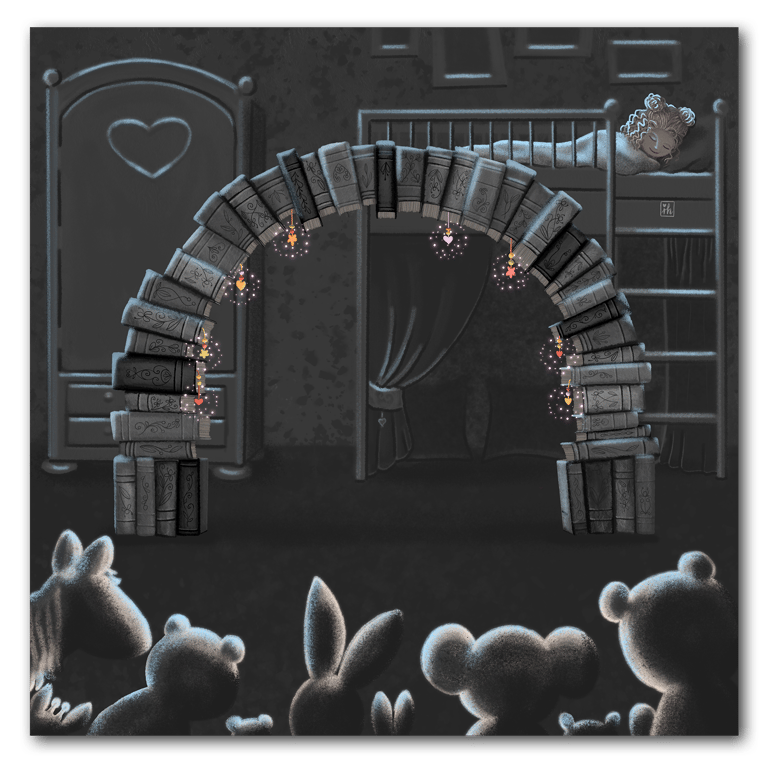

Meet me
I was born in Hungary and grew up under the quiet weight of communism — a world where stories often said what people couldn’t. Even as a child, I sensed that the truth was something you sometimes had to look for between the lines. I admired the Hungarian scientists, filmmakers, and artists who left to create freely abroad, and felt proud that such talent came from our small country. Some of my own relatives built new lives in Sweden, and through them I learned early how precious creative freedom really is.


- Ildiko
With Hungarian Roots and Childhood Reflection
I’m Ildiko Hankoszky - illustrator, storyteller, grandmother, and seeker of quiet light.
I began my career in wood sculpture and conservation, later joined by animation, and then graphic design. Working with old wood was deeply fulfilling but also hard on the hands - quite literally. After two surgeries, I had to step away from sculpting and continued my journey through illustration and design. Today I live in the Wiltshire countryside, among quiet lanes and crooked cottages, where I felt at home right away. Maybe it’s because I grew up watching British films and children’s stories - I didn’t know it then, but those worlds stayed with me.
Life, of course, has its own storylines. Becoming a mother, losing my husband, and navigating illness have all shaped how I see the world. Through those years, art became not just my work but my way to make sense of things. My first picture book, Beyond the Blue Forest, was born from that time - a story about loss, courage, and the small lights that help us find our way forward.
Now, as a grandmother, I continue to explore those quiet spaces between light and memory through Blooming Lantern - a growing collection of illustrated storybooks, cards, and artworks for both children and adults. My work celebrates the gentle side of strength - the ability to laugh, to reflect, and to keep a steady little light burning, no matter what the weather does outside.



About Fairy Tales
Ongoing research continues to shed light on the multifaceted effects of fairy tales on children's development, encompassing cognitive, social, emotional, and cultural dimensions.
Cognitive Development: Some studies have investigated how exposure to fairy tales influences children's cognitive development, including language skills, imagination, and problem-solving abilities. Researchers have found correlations between exposure to complex narratives like fairy tales and enhanced cognitive development in children.
Social and Emotional Development: Other studies have focused on the social and emotional impact of fairy tales on children. They explore how exposure to characters and storylines can help children develop empathy, understand moral dilemmas, and navigate emotions.
Parent-Child Interaction: Research also examines the role of parent-child interaction during shared reading of fairy tales. Studies suggest that the discussions prompted by fairy tales can deepen parent-child bonds and provide opportunities for meaningful conversations about values and emotions.
Cultural Influences: There's ongoing research into how cultural variations in fairy tales affect children's development. Different cultures have their own sets of fairy tales with unique themes and messages, and researchers are interested in understanding how exposure to these diverse narratives shapes children's worldviews and values.
Educational Applications: Some studies explore the use of fairy tales in educational settings. Researchers investigate how integrating fairy tales into curriculum activities can enhance learning outcomes across various subjects, including literacy, social studies, and character education.


Why Fairy Tales Still Matter
Fairy tales have always been more than bedtime stories. They are maps of emotion - filled with symbols, transformations, and quiet wisdom disguised as talking animals and magic woods. Long before psychology gave names to our fears and hopes, these old stories helped people understand them.
Children often take fairy tales very seriously, sometimes more than adults realize. The stories give shape to things that can’t yet be explained - fear, loss, courage, belonging - and they offer safe ways to imagine how change might feel. When a child hears about a hero who faces the dark forest and finds a way through, they’re learning something deeply human: that life can be difficult and uncertain, but there’s always a path forward.
Modern research continues to reveal how fairy tales shape children’s development - emotionally, socially, and culturally. Their value goes far beyond entertainment: they build imagination, moral reasoning, empathy, and resilience. That’s why I see them as both an art form and a form of quiet emotional education.
For me, fairy tales are a kind of language - one that still speaks clearly, even in our modern world. And maybe that’s why I keep returning to them in my own stories: not to escape reality, but to explore it in a gentler, more symbolic way.

